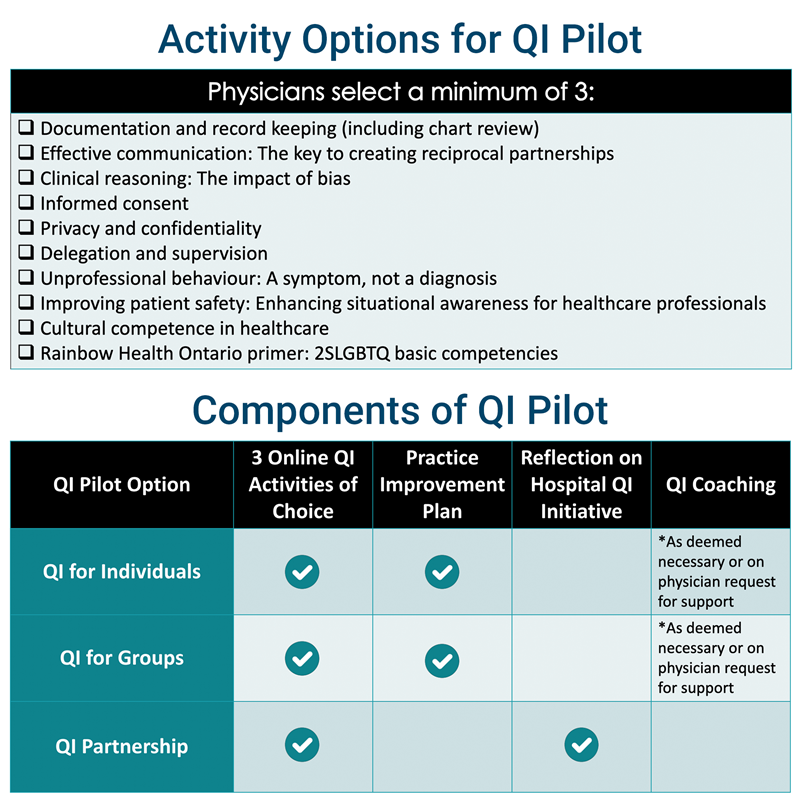
More than 1,000 physicians, representing at least 20 different specialties, have been invited to enroll in CPSO's 2025 Quality Improvement (QI) Program Pilot. Physicians participating in the pilot can both meet their CPSO Quality requirements and provide feedback to shape the QI Program for the next five-year cycle (2026-2030).
The pilot, which got underway in March, features expanded choice. Physicians are now able to choose their preferred three QI activities from a list of 10 possible options. It also includes a condensed Practice Improvement Plan format that assists physicians to structure a problem-based QI intervention relevant to their specialty and practice setting.
“We expect of ourselves the same commitment to continuous quality improvement that we ask of physicians,” says April Jacobs, Director of Quality Programs & Accreditation at CPSO. “That is why we have leveraged program data, particularly physician feedback, from the first cycle to drive a new, improved, and expanded program.”
The full list of activities available through the QI pilot is below. Physicians can participate in those activities most relevant to their practice. The activities were selected for two reasons - they are easily accessible and relevant to all specialties and practice settings, and they address some of the frequent sources of concerns and challenges brought to CPSO by both physicians and patients.
The pilot will run until August and will inform the development of the new QI Program cycle, which will launch in 2026. For more information, please visit the QI Pilot webpage.

Transcript for Above Charts
In the new QI pilot program, physicians will select at least three activity options from the following: Documentation and Record Keeping (including chart review); Effective Communication: The Key to Creating Reciprocal Partnerships; Clinical Reasoning: The Impact of Bias; Informed Consent ; Privacy and Confidentiality; Delegation and Supervision ; Unprofessional Behaviour: A Symptom, not a Diagnosis; Improving Patient Safety: Enhancing Situational Awareness for Health-Care Professionals; Cultural Competence in Health Care ; and Rainbow Health Ontario Primer: 2SLGBTQ Basic Competencies
Three online QI activities of choice will be a component of QI for individuals, QI for Groups and QI Partnership. The Practice Improvement Plan will be a component for Qi for Individuals and QI for Groups. Reflection on Hospital QI initiative will be a component of QI Partnerships. QI Coaching will be available for QI for Individuals and QI for Groups participants if deemed necessary or requested by the physician.










